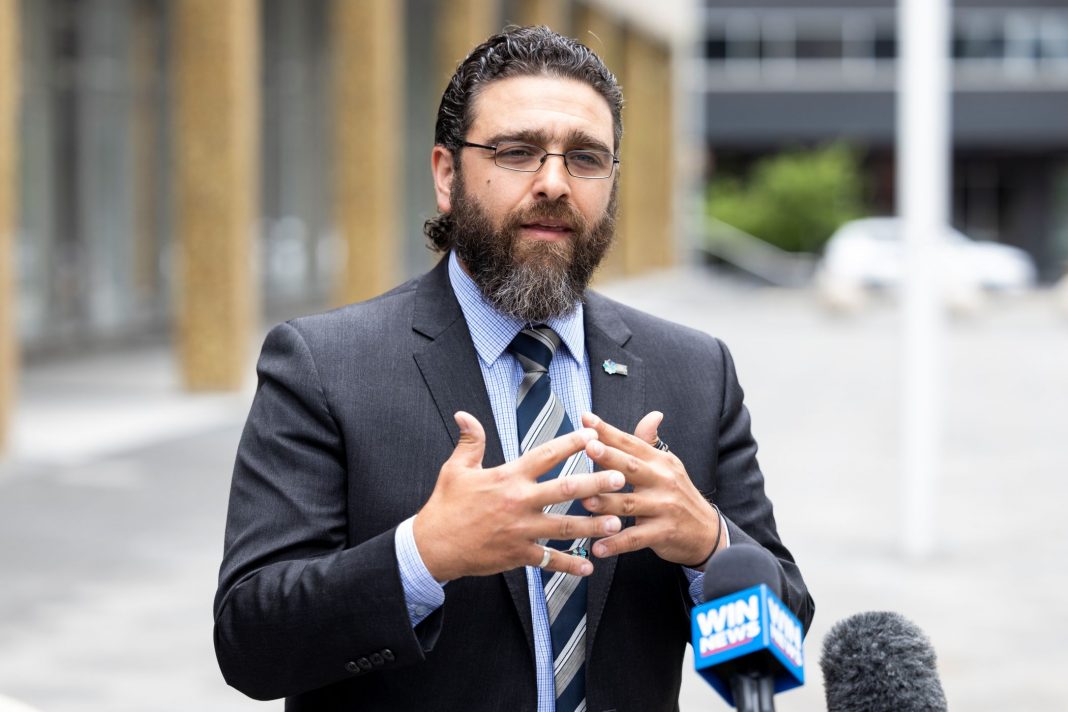The thin blue line has been stretched to its limits in the ACT, and it’s having a physical and mental health toll on police officers, says Australian Federal Police Association president, Alex Caruana.
Recently I read an article out of England, where the Police Commissioner in charge of the Humber Bridge area, faced with inadequate funding and insufficient resources from the government, made a bold decision to direct his officers not to respond to mental health or health-related calls – unless there was a clear threat to life.
Whilst it might sound controversial, this seemingly drastic measure had a profound impact.
In the ACT, as in many parts of Australia, we often rely on the police to deal with mental health crises. In fact, a large percentage of incidents that police attend don’t even have a criminal offences attached to it. When someone experiences a psychotic episode or a mental health crisis, who do you call? The default answer is the police, yet no criminal offence has occurred.
They, in turn, are expected to take the individual to the hospital. But what happens when the hospital decides that the person doesn’t need to be there, and there’s no follow-up service or support? The police end up in a never-ending loop, responding to the same person multiple times in a single day.
This not only ties up our already stretched police force but also puts the person at risk. Police officers should be dealing with serious crimes, such as burglaries, family violence, child exploitation and abuse offences, and other pressing law enforcement matters. Throughout a career, a police officer wears many hats to serve and protect the community; they are marriage and relationship counsellors, they are youth workers, they are quasi-psychologists, they have to try and identify if someone is suffering from dementia, schizophrenia or other mental health conditions or just a person committing crime.
Let’s look at the raw numbers. In 2000, the ACT population was 344,000 people. In 2010, it was 398,000 and in 2020, it was 457,000 people. Today it’s around 470,000 people. Now look at the numbers of police officers, in 2000 the ACT had 607 police officers, it was 717 police officers in 2010, down to 697 in 2020, and today it’s 731 police officers. Since 2000, the ACT population has grown by 37 per cent, yet police numbers have only increased by 20 per cent.
Let’s turn our attention to drug-related incidents. If someone is passed out on a park bench, is it a police problem? It shouldn’t be. In such cases, where no criminal offence has been committed and there’s no immediate threat to anyone, the police should not be involved.
The ACT Government is leading the charge of the decriminalisation movement. They’ve made it clear that drugs are a health issue. And if that is the case, then we must see all of these health matters referred to the correct agencies.
This doesn’t just apply to the ACT alone; it affects every police officer. The underlying issue here is a lack of resources and funding. The 2021-2022 ACT Policing Annual Report reveals an alarming drop-off in priority-one response times due to a shortage of police officers. These are the jobs where you want and need police to attend, these are life or death situations.
Furthermore, the ACT Government has set a cap on the number of officers, and this limits our ability to replace retiring or resigning officers, despite the existence of potential recruits.
The root of the problem lies in Policing Arrangement[1], where the ACT Government negotiates the services it pays for. This often means that they allocate more resources to one area at the expense of law enforcement. The result is a strain on the police force, particularly when dealing with drug health-related callouts.
Yet, it’s essential to recognise that police officers are not trained mental health professionals or drug experts. They don’t have the proper medical training to handle individuals experiencing mental health crises or drug-related issues. In some cases, police officers and paramedics attempting to administer life-saving interventions have faced legal repercussions. This isn’t fair to the officers, who already have their hands full with law enforcement.
The time has come for the ACT Government to reconsider its approach. It’s essential to rethink the allocation of resources, redefine the role of the police, and provide proper training and support for officers. The thin blue line has been stretched to its limits in the ACT, and it’s having a physical and mental health toll on my members.
In the ACT, drugs are rightfully seen as a health issue rather than a legal one. However, this change must be reflected in all aspects of policing, not just crimes explicitly labelled as drug-related.
Only by addressing these issues can we ensure that the police can focus on real policing and that the ACT residents receive the assistance they need, whether it’s related to health, mental health, or drugs.
It’s time for a comprehensive and open conversation about the future of policing in the ACT.
[1] https://www.justice.act.gov.au/safer-communities/crime-prevention/act-policing
Have an opinion?
Email [email protected] with ‘To the editor’ in the subject field; include your full name, phone number, street address (NFP) and suburb. Keep letters to 250 words maximum. Note, letters may be shortened if space restrictions dictate.



